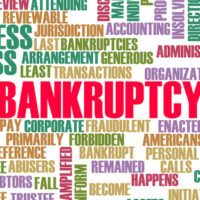Why File for Chapter 13 Bankruptcy?

Unlike with a Chapter 7 bankruptcy, in Chapter 13 bankruptcy, you will make a payment to some of your creditors over a period of 3-5 years. At the end of your payments, you will get a discharge of whatever you have not paid. In any scenario, you will not have to pay everything that you owe to your creditors. There will be a large amount of debt that is discharged, assuming the payments are made and the plan is completed.
Still, the question comes up: why file for Chapter 13? Why voluntarily opt for a bankruptcy that requires payments over a period of years when in Chapter 7 you get an immediate discharge of debts?
Benefits of Chapter 13
There are actually many reasons why people file for Chapter 13, and depending on your situation, you may even prefer Chapter 13 over Chapter 7 bankruptcy.
- Your income doesn’t matter—in fact, it helps to make more in Chapter 13. In Chapter 7, because of the means test, if you make too much money, you could be prohibited from filing for Chapter 7. But with Chapter 13, it actually making more money shows that you can pay and complete a Chapter 13 plan. That means for higher earners, there is still a path to a fresh start that isn’t available in Chapter 7 bankruptcy.
- You own property that could be taken – There are a lot of exemptions in Chapter 7 that allow consumers to keep property that they have. However, those exemptions do have limitations. Some people who file for Chapter 7 may have valuable assets that they want to keep or that they cannot even risk losing in a Chapter 7 bankruptcy. Chapter 13 allows debtors to keep a lot more property than they normally would be able to do in a Chapter 7 bankruptcy.
- You have secured property that you want to keep – A Chapter 7 can temporarily hold off a repossession or a foreclosure—but the Chapter 7 won’t prevent you from losing the property. Once the bankruptcy is over, in many cases, the lender can continue to take any property that is secured.
However, in Chapter 13 bankruptcy, you get to not only keep property that is secured, but at the end of your payment plan, you will be current and caught up with any loans that you were behind on when the bankruptcy started. In that way, Chapter 13 can permanently avoid a foreclosure or repossession.
- You’re behind on non-dischargeable debts – In a Chapter 7 bankruptcy, things like child support, student loans or some tax obligations, may not be discharged. That means that when your Chapter 7 bankruptcy is over, you’re back where you started from. In Chapter 13 however, you get to pay back what you owe over a period of time. It’s like a legally required payment plan with very favorable terms.
Call the West Palm Beach bankruptcy lawyers at Kelley Kaplan & Eller at 561-264-6850 to discuss whether bankruptcy is right for you.
Resource:
uscourts.gov/services-forms/bankruptcy/bankruptcy-basics/chapter-13-bankruptcy-basics



